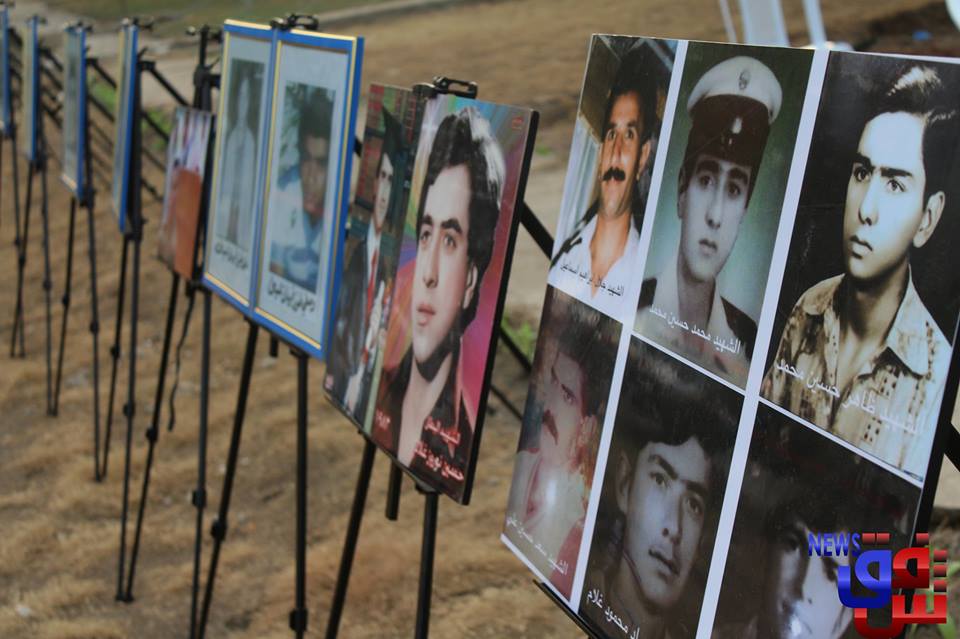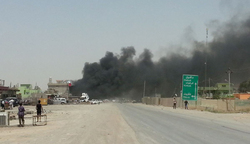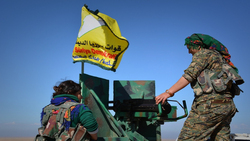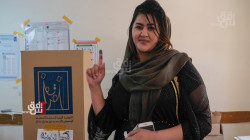The plight of the Fayli Kurds throughout Iraq's history

Shafaq News / The Fayli Kurds have endured relentless persecution throughout Iraq's history, marked by wars and tragedies. The conflict of identity amidst sectarian warfare has significantly affected the living areas of this particular Kurdish group. Moreover, the Iran-Iraq war in the 1980s opened a door for settling scores long hidden within Ba'athist ideologies.
The ensuing purge, notably brutal and explicit, targeted non-Arabic ethnicities, particularly the Fayli Kurds. On April 10, 1980, the Iraqi government issued Decree 666, mandating the deportation of anyone not holding Iraqi citizenship to Iran. This decree essentially legitimized the extermination of Fayli Kurds. At the time, being Fayli became a crime, firstly for being Kurdish and secondly for being considered, religiously, affiliated with Iran, as they are Shia Muslims.
While the Anfal campaigns targeted Kurds, the Fayli Kurds faced executions, displacement, and murder. The peril of Saddam's fascism provided full legitimacy for this ethnic and religious cleansing, sacrificing minority rights under the guise of Arab unity, not solely against America and Israel, but at the expense of this national and religious minority.
Saddam derived legitimacy for his Anfal campaigns and ethnic cleansing from his Ba'athist ideology, labeling anyone outside his Arab-centric project as a fifth column or saboteurs, thus meriting their elimination.
This war was not just about physical annihilation but a cultural battle and deliberate language eradication. Speaking or studying anything other than Arabic was seen as a threat to the Arabic language itself. Simultaneously, it tactically aimed to deepen fragmentation among the Kurds, divided by different beliefs. Arab nationalist ideology aimed to assert its sovereignty by eliminating other ethnicities either through psychological terror or the assassination of their identities.
Furthermore, Saddam's fascism was built on destroying non-Arabic languages and identities. It aimed at eliminating any perceived threats to the Ba'athist ideological framework.
Nazism and Ba'athism stemmed from a common root and dynamic, yet Saddam's approach to exterminating the Fayli Kurds differed significantly from Hitler. He designed two types of holocausts: one to burn their bodies and another to incinerate their history and memories. The impact was so profound thet even after Iraq's liberation, this community struggled to fully practice its culture and language.
Kurdish author Bakhtiar Ali provided a serious insight into these two types of Fayli Kurdish holocausts in his novel. Bandar al- Fayli , born inside prisons and liberated after years, embodies the stark history of Fayli Kurds, unveiling all facets of Saddam's fascism imposed on the ideal body of the Fayli Kurds.
Bandar's birth in prison metaphorically reflects the reality that " Fayli s live imprisoned", and the novel, referencing the Holocaust, highlights that Bandar's sole crime in prison is being a Fayli .
Minority issues are a grave concern globally, yet the plight of this religious and ethnic group in Iraq stands unparalleled. Saddam's fascism consistently viewed Kurds, especially the Fayli s, as a perpetual threat.
Saddam consistently treated the Fayli s akin to Saturn's children, consuming its offspring to prevent any future challenge to his closed divine system. Every regime necessitates the creation of adversaries to perpetuate its existence.
Nazism deep-rooted itself in a historical abyss. To cope with this psychological conflict, it scapegoated Jews for the disruption, suggesting they hindered its perfection.
According to Eric Fromm, the essence of dictatorship is cowardice. It means fearing gaps prompts us to seek an enemy, attributing our internal flaws to them. Saddam and his regime sought an unknown foe until the Fayli s became the path to this impasse. It claimed, "I, the Arab, am not the cause of this deficit; it is the Fayli Kurds who are."
Even after liberation, Fayli Kurds could not access democratic and liberated spaces. They remain a stifled minority with an uncertain future. This situation similarly applies to Yazidis and other minorities.
Additionally, post-Saddam's era democracy represents a different brand of fascism with subtler tools. The aftermath of 2003 birthed not a new democracy but the election of a dictator. The chauvinistic mindset and Arab superiority still permeate Iraqi politics, leaving the Fayli grappling with an unknown fate, punished for not knowing what tomorrow holds.
In his book "Democracy or Capitalism" Marc Feurbaey presents a thought-provoking statement that questions the entire democratic system in the Third World. He states, "Democracy is not about having a parliament and a judicial authority; it is about securing a future for citizens." This implies that keeping citizens in constant uncertainty about their future and when they might die represents an extreme form of dictatorship. The threat of losing tomorrow is a serious challenge faced by the Fayli Kurds in a post-Saddam world.
Ultimately, it is fair to say that Saddam's actions against the Fayli Kurds were not just a singular event but rather two distinct phases: the era of Saddam and the post-Saddam era. Saddam's Ba'athist fascism began with a form of ethnic cleansing against the Kurds, making it nearly impossible for democracy to heal its wounds.
The Fayli Kurds stood as symbols in exposing the fascism during Saddam Hussein's Iraq, and to comprehensively analyze this history, further efforts are needed on political, cultural, and historical fronts.



